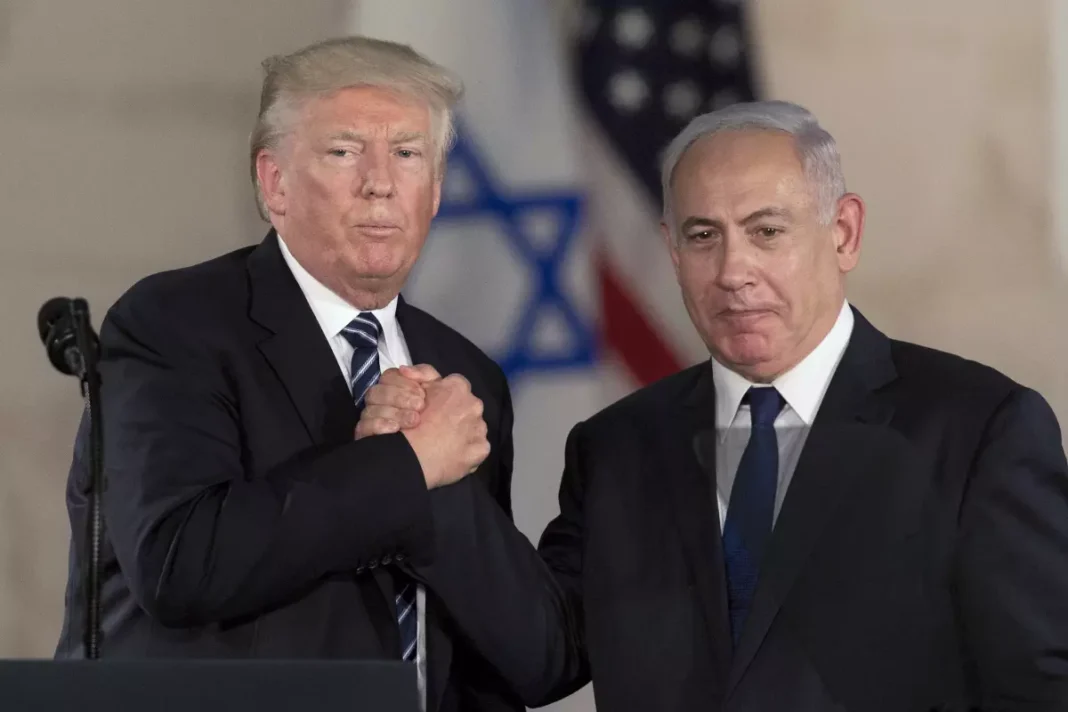|
Getting your Trinity Audio player ready...
|
Edited by: Fern Sidman
Israeli Prime Minister Benjamin Netanyahu’s visit to the United States this week has sparked significant interest, not only due to meetings he was scheduled to have with President Joe Biden, Vice President Kamala Harris, and members of Congress but also because of the potential for a face-to-face meeting with former President Donald Trump, according to a report that appeared on Monday on the Politico.com web site. This possible rendezvous, although still unconfirmed, adds a layer of complexity to Netanyahu’s trip, reflecting the intricate web of current U.S.-Israeli relations and the broader geopolitical landscape.
Netanyahu’s primary purpose in Washington is to engage in high-level discussions with the current administration. His meetings with Biden, Harris, and lawmakers on Capitol Hill are expected to address a range of critical issues, from security cooperation and the ongoing conflict in Gaza to the future of the U.S.-Israeli alliance, as was reported by Politico.com. Netanyahu’s speech to Congress on Wednesday will likely focus on Israel’s strategic priorities and its expectations from the U.S. as a key ally.
The timing of these meetings is particularly significant. Biden’s recent decision to withdraw from the presidential race has left a political vacuum that Vice President Harris is beginning to fill. As per the information provided in the Politico.com report, as she assembles her campaign team and refines her foreign policy platform, including her stance on the Gaza conflict, Netanyahu’s insights and the outcomes of their discussions could influence her positioning.
Parallel to these official engagements, Netanyahu’s outreach to Trump reveals a different dimension of his diplomatic strategy. According to sources familiar with the matter, Netanyahu’s team has been in discussions with Trump’s camp about the possibility of a meeting, potentially in Florida, later in the week, the Politico.com report noted. While Trump has not yet committed to the meeting, he has also not dismissed it outright.
The backdrop of this potential meeting is colored by the evolving dynamics between the two leaders. During Trump’s presidency, U.S.-Israeli relations reached new heights with landmark decisions such as the recognition of Jerusalem as Israel’s capital and the relocation of the U.S. embassy there. However, Politico.com reported that the relationship soured following Netanyahu’s prompt acknowledgment of Biden’s 2020 election victory, which Trump perceived as a personal affront. The Politico.com report also indicated that more recently, Trump’s criticism of Israel’s intelligence shortcomings on October 7th and his warning about the repercussions of failing to secure the release of American hostages in Hamas captivity have further strained ties.
For Netanyahu, seeking a meeting with Trump is a calculated move. Despite their past differences, Trump remains a powerful figure with significant influence over a substantial portion of the American electorate, including many pro-Israel advocates, as was explained in the Politico.com report. Engaging with Trump could serve multiple purposes: it might help mend fences, reassure Trump’s supporters of Netanyahu’s allegiance to shared goals, and potentially secure Trump’s backing in the future.
Conversely, Trump stands to gain from such a meeting as well. It provides an opportunity to reaffirm his strong support for Israel, a stance that has been a cornerstone of his political identity. Additionally, Politico.com report that with Harris now emerging as the presumptive Democratic Party nominee for president, Trump could leverage his interactions with Netanyahu to critique the current administration’s policies and bolster his own foreign policy credentials.





